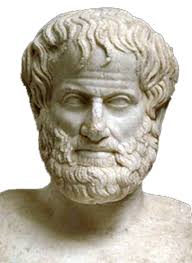
The Pursuit of Happiness
"We hold these truths to be self-evident, that all men are created equal, that they are endowed by their Creator with certain unalienable Rights, that among these are life, liberty and the pursuit of happiness. "
There are those who believe these words found within the Bill of Rights are going to save our nation. I have heard often, of late, that the founding documents of America are "sacred." In fact, I have always heard that these sacred rights are given to us by God. And we deduce from this that God is supportive of Lady Liberty and wants every nation to have the right to pursue happiness.
Now a very pointed question: Is it true that God desires us to pursue happiness?
"Of course", many of you reply, "God wants us to be happy!"
Before we get any further into this, we need to be very clear about the meaning of happiness, the working definition for this post.
What is Happiness?
What is happiness? There are many ways to describe the feelings of happiness: satisfaction at having ones desires fulfilled, pleasure, contentment, comfort, pleasantness. There are ways of achieving these feelings of happiness. One is through passive pleasure where someone else gives you enjoyment without your asking for it--like a baby being rocked or someone giving you a gift. When someone begins to rely on this type of happiness, they develop the attitude that in life everything will be alright, it's in God's hands. They believe they have no control and learn to be satisfied, so they sit back and watch the show of life.
There is also the active pursuit of happiness (reflected in the Bill of Rights). This is something you choose to do with your will, like going to the theater or ball game or grabbing a bag of Cheetos. When this philosophy is adopted you live a life seizing the moment, just "doing it." You prefer a God-helps-those-who-help-themselves attitude. This active pursuit of comfort, satisfaction and pleasure is definition we will be using here.
How Do We Pursue Happiness?
Even the ancient philosophers saw this pursuit as tricky at best and impossible at worst. In Ethics II, Aristotle is a bit at odds with our current cultural definition as he argues that happiness is not passive sensual pleasure, but an intellectual delight where one consciously wills to act in harmony with virtue. And one's act of virtue
 must be done at the right time, in the right way with the right motive. And though rare, happiness can only be attained if ethical practices shape the events in the world.
must be done at the right time, in the right way with the right motive. And though rare, happiness can only be attained if ethical practices shape the events in the world.
I am inclined to think that America's Englightenment-based founding fathers saw our country's pursuit of happiness with the pagan Aristotelian vision. America filled with ethical people acting ethically in the quest to achieve our ethical goals. That would be far more realistic than today's vision of happiness. Culturally our happiness goals seem to be fame and fortune at any cost by as little effort as possible. Happiness is almost expected, even demanded as a right, because you are an American. Like a fast , inexpensive happiness drive-thru, "and supersize it."
Today the effort in pursuing happiness falls on the "right" to pursuit it rather than on the actual pursuit. We tend to be passive our American goals. What I mean is that we often are lazy in education and in our lifestyles and morals. We want to sit back and be entertained instead of working hard to get to our dreams. And then we tend to be angry when we don't achieve our desires and blame someone else.

When enough of us seem frustrated and depressed, some people become activists. These social reformers do not teaching people to become more hard working and self-reliant in attaining their goals, but they see the problem as the human right (to pursue happiness) as being inaccessible. They may see race or gender or sexual orientation or socio-economic status as impeding their right to pursue their dreams. Rather than blame themselves, they blame the government, laws or the rich. The United States has become a culture of defending rights rather than using them.
Does God Really Want Us to Pursue Happiness?
An even more basic question is if God even wants us to pursue happiness. I can hear everyone out there telling me, "Of course God wants us to be happy!" But that isn't what I am asking. Yes, God wants us happy, but are we supposed to be pursuing happiness? Even the ancient pagans figured out that you cannot achieve happiness when you are pursuing it. I cannot find anywhere in scripture that tell Christians to seek happiness. Quite the opposite, Jesus is recorded as saying we are to deny self and take up our cross and follow Him. We are to seek the kingdom of Heaven first and all the rest will be added. We are to sacrifice for others and seek the best for them, not ourselves.
This idea of God-given right to pursue happiness is man's tradition, not one we derive from scripture.
Think about it logically. No one really knows what makes them happy unless happiness consists only of a moment by moment self-gratification. It takes maturity to know what makes us happy. A child may think happiness is a dinner of sweets, but that will later make them sick. A thirteen-year-old may believe that pursuing happiness is getting one's own place, having a car and job but in reality that would be hell. An adult may want money or fame, but how many rich and famous people commit suicide? I don't know many hollywood stars I would want to change places with. Money and fame often make one miserable. Jesus frequently warned us against pursuing money. Most of us are simply not wise enough to know what makes us happy therefore we are chasing shadows. We spend our life making poor choices in hopes of this elusive happiness, refusing to believe that the hard decisions, the giving up ephemeral pleasures to seek the good of others will eventually bring us happiness.
How many people divorce to pursue happiness and find that it hurt their children? How many father's pursued a career and placed his family at risk? God knew that we wouldn't be mature enough to know what it was that would make us truly happy or even how to get there without obedience to Him.
Using the Pursuit of Happiness to Pursue Evil

The worst of it is that we often use the freedom to pursue happiness as carte blanche to do evil. As if "I did it my way!" is a religious theme-song for Americans.
Under the guise of God-given sacred rights we actually think we are doing right by doing what we wish. We incoherently place the white hat on ourselves and our goals when in reality we are going against God by certain choices. No one really thinks they are pursuing evil when they are sincere of heart. No one thinks of themselves as wearing the black hat and twisting one's mustache when one is simply doing what the Constitution tells us what God wants us to do. No way! Americans always wear the white hat, don't we?
But doing wrong under the guise of seeking our happiness shows we do not have God's mind. We'll never be smart enough to know the end from the beginning.
We think that our interpretation of what is good and evil is a God-given right. Upon the bases of our personal ideas of right and wrong, we pursue the goals we think will make us happy and we hear the Stars Spangled Banner in the background see Old Betsy proudly waving and think we are pleasing God. Wrong.
There are Christians out there who truly believe that Christ died for our rights to choose evil--that the Cross was about freedom to do what we want without consequences. (Actually, God's creatures have always had choice. The angels fell because of their choice.) The Cross was about restoration! Salvation was about giving us the opportunity to choose God and to turn from enslaving sin. God isn't about freedom of choice but about our willful choice of choosing obedience of faith to Him!
American Christians are brilliant at excusing our wicked choices with the Bill of Rights. It's as if we have more faith in the Constitution than scripture, more faith in the founding fathers than Christ.

Happiness is Obeying God's Will, Not Ours
The pursuit of happiness can be an utterly self-consumed and selfish way to live. Happiness is not the goal for Christians, holiness is. We should live a life so filled with Christ, a soul so full of truth and goodness, that others will see our love and will be drawn to that light. We will save our nation and others not by our pursuit of happiness but by a life teaming with humble self-sacrifice, a life full of faithful obedience working through love.
Rights are killing our happiness. Doing what God tells us is right is our only hope of happiness.




